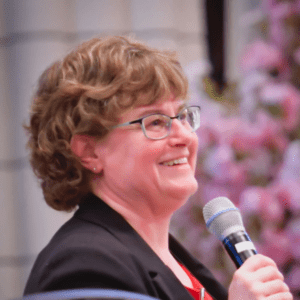Friday, I spent a good portion of the day with a group of pastors in our Faithful Innovation process who were gathered for a previously scheduled retreat. We weren’t far into our day before it became clear that we would not be able to follow our regular agenda; calls from council members, community leaders, and late-breaking news sources exploded every time we took a break.
Yet, in the midst of the chaos, we noted together that we have been practicing our innovation thinking for just a time as this. We know that we need to Dwell in the Word, listen wisely to the voices around us, and act in new ways to discover how to be church right now.
Here are a few things I share with you from our group:
- You are not alone. Jesus has promised to be with us in times of uncertainty and suffering, and God goes before us even when we aren’t sure of our next steps. We have wonderful colleagues with whom to pray and join in the discernment process. Continue to network and support as you are able.
- Pray. With things shifting so quickly, it is easy to react rather than respond. Check into information resources regularly, but also disconnect to breathe and listen more deeply to God’s invitation and movement.
- Work your innovation process. For those of you who are new, this is what that looks like.
a. Gather. In small groups, by phone, by whatever resources you have. Even while distancing for health, we need to connect in spirit.
b. Dwell in the Word. Use a text that makes sense to you. Here’s a list in case you need ideas (thank you Facebook hive!)
c. Listen to God, each other, and neighbors to hear what is needed, and compile what you are hearing. See if there are themes that catch your attention.
d. Work through the How Might We process. Be creative. Add a “Dear God,” before your How Might We in order to frame them as prayers.
e. Try things. Think experiment, not long-term program. Try and learn small things quickly so that you can adapt and shift as needed.
f. Take time to reflect on what you tried. With your conversation partners, share what you learned and where you felt energy and God’s invitation for the next experiment. This should draw you back to the beginning of the process of designing your next action.
You are in our prayers, dear leaders. May you feel the creativity of the Holy Spirit uplifting you as you move through the days and weeks ahead.
Photo by Priscilla Du Preez on Unsplash



